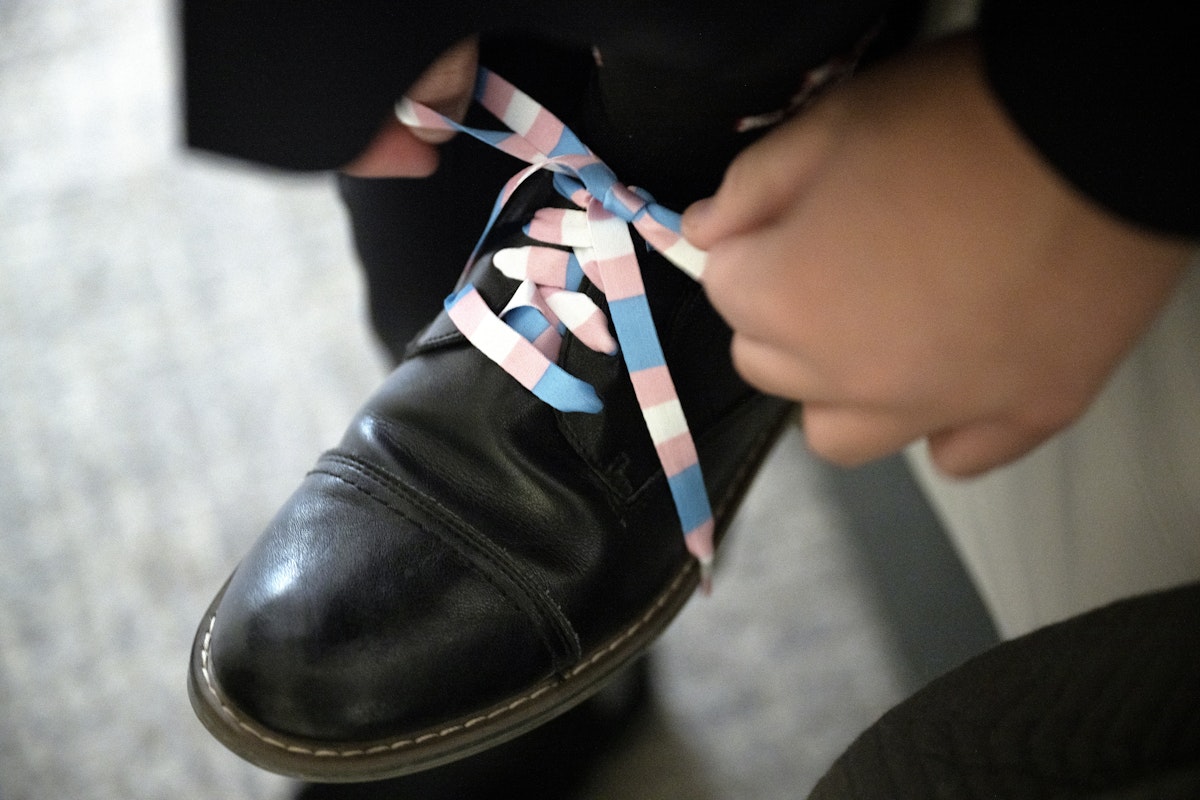West Virginia Bill Could Ban All Transgender People From Schools
A West Virginia Republican lawmaker has introduced a bill that would classify transgender people as “obscene matter” and ban them from getting within 2,500 feet of a school.Senate Bill 197, which was introduced Wednesday, prohibits obscene matter from being within 2,500 feet of a public school building or facility. Obscene materials are defined as something that is sexually explicit “in a patently offensive way” or something that “lacks serious literary, artistic, political, or scientific value.”The bill states that, for the sake of protecting children, obscenity also includes “any transvestite and/or transgender exposure, performances or display to any minor.”Any school faculty or staff that allow obscene material within 2,500 feet of the school can face up to a year in prison, a fine of up to $500, or both. The bill, which was introduced by Republican state Senator Michael Azinger, makes no mention of how the new rules would affect transgender students.Besides the obvious transphobia of the bill, which dehumanizes trans people by classifying them as “materials,” the measure would also dramatically increase the criminalization of trans people. Obscenity laws are hard to enforce, because definitions of obscenity still largely come down to individual interpretation. As a result, there will likely be more reports of obscenity, made by people who are either more conservative or just nervous about accidentally breaking the law.Azinger’s bill, like many other Republican-backed measures curbing LGBTQ rights, is not intended to protect children or prevent public displays of indecency—or even necessarily stand up to legal challenges. The vaguely worded text is primarily meant to scare people.This bill is the latest in West Virginia’s assault on trans rights. In March 2023, Governor Jim Justice signed a bill banning gender-affirming care for trans and nonbinary minors. Gender-affirming treatments such as hormone therapy and reversible puberty blockers are widely backed by the medical community and have been proven to decrease depression and suicidality in trans and nonbinary teens.

A West Virginia Republican lawmaker has introduced a bill that would classify transgender people as “obscene matter” and ban them from getting within 2,500 feet of a school.
Senate Bill 197, which was introduced Wednesday, prohibits obscene matter from being within 2,500 feet of a public school building or facility. Obscene materials are defined as something that is sexually explicit “in a patently offensive way” or something that “lacks serious literary, artistic, political, or scientific value.”
The bill states that, for the sake of protecting children, obscenity also includes “any transvestite and/or transgender exposure, performances or display to any minor.”
Any school faculty or staff that allow obscene material within 2,500 feet of the school can face up to a year in prison, a fine of up to $500, or both. The bill, which was introduced by Republican state Senator Michael Azinger, makes no mention of how the new rules would affect transgender students.
Besides the obvious transphobia of the bill, which dehumanizes trans people by classifying them as “materials,” the measure would also dramatically increase the criminalization of trans people. Obscenity laws are hard to enforce, because definitions of obscenity still largely come down to individual interpretation. As a result, there will likely be more reports of obscenity, made by people who are either more conservative or just nervous about accidentally breaking the law.
Azinger’s bill, like many other Republican-backed measures curbing LGBTQ rights, is not intended to protect children or prevent public displays of indecency—or even necessarily stand up to legal challenges. The vaguely worded text is primarily meant to scare people.
This bill is the latest in West Virginia’s assault on trans rights. In March 2023, Governor Jim Justice signed a bill banning gender-affirming care for trans and nonbinary minors. Gender-affirming treatments such as hormone therapy and reversible puberty blockers are widely backed by the medical community and have been proven to decrease depression and suicidality in trans and nonbinary teens.


